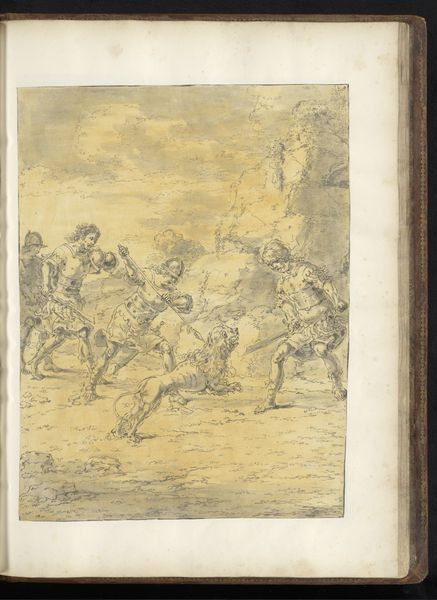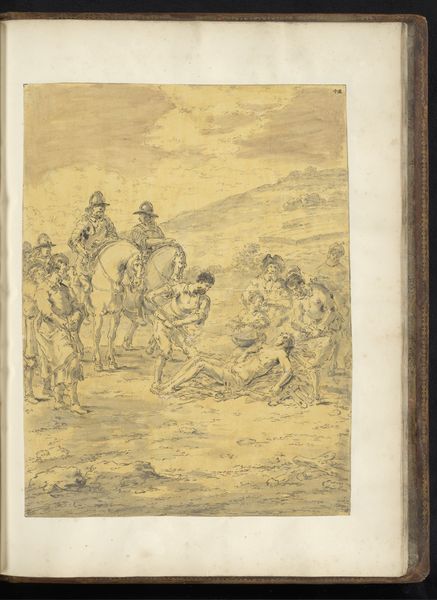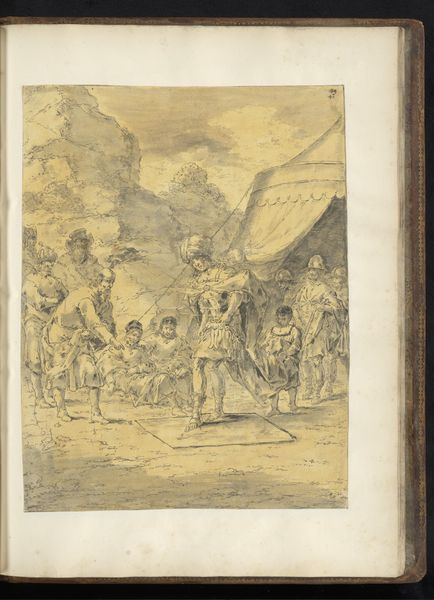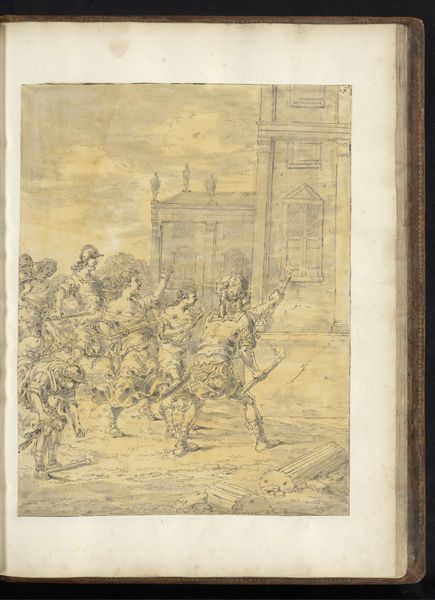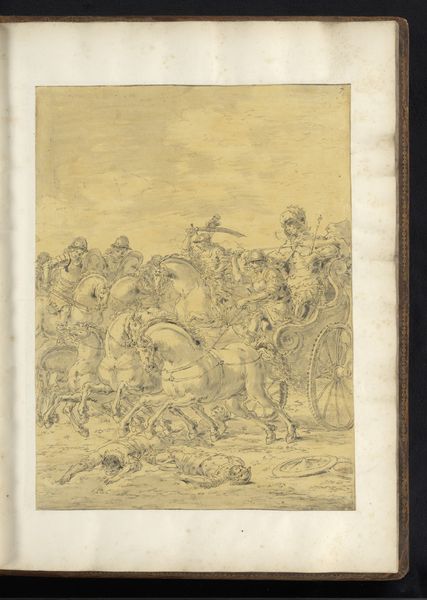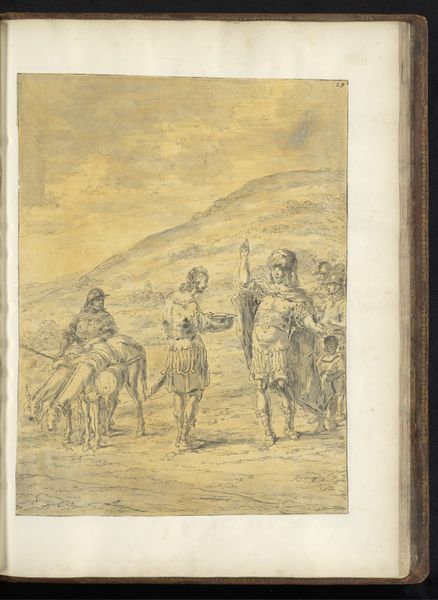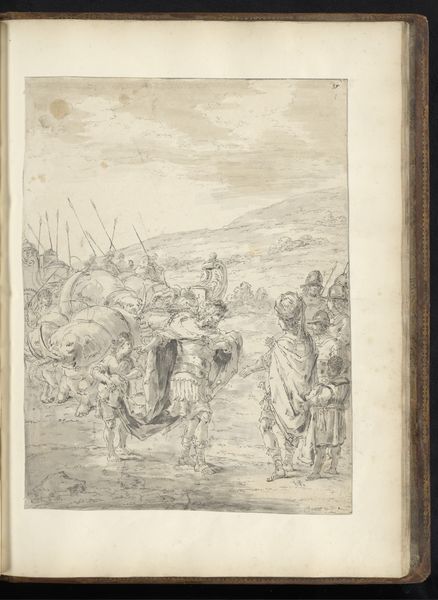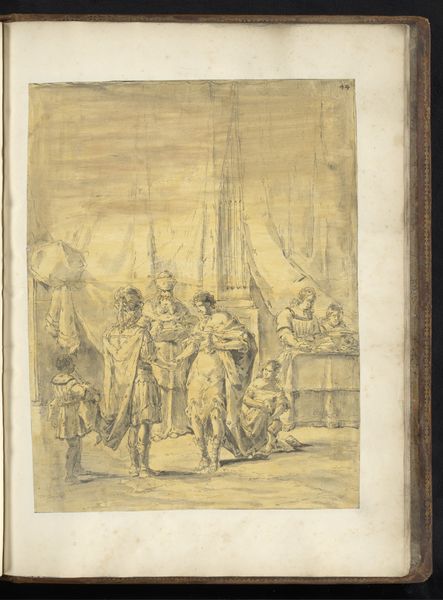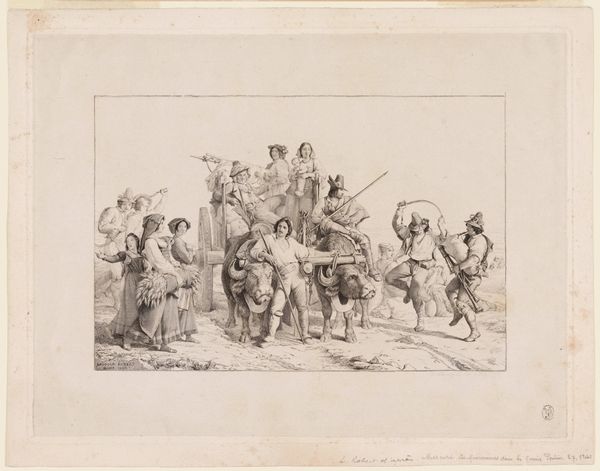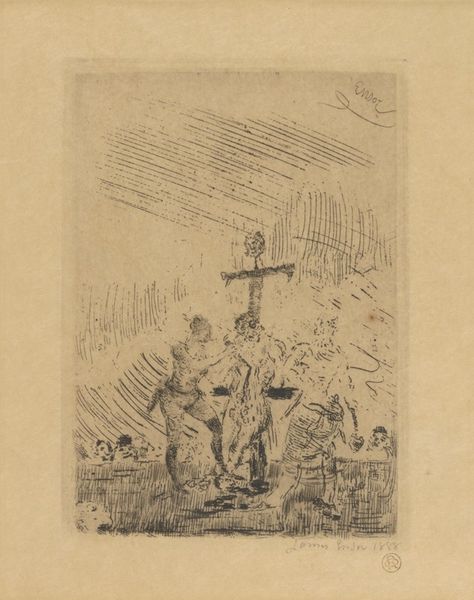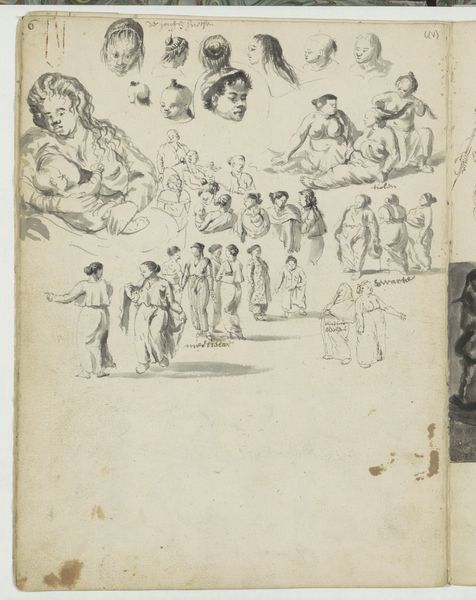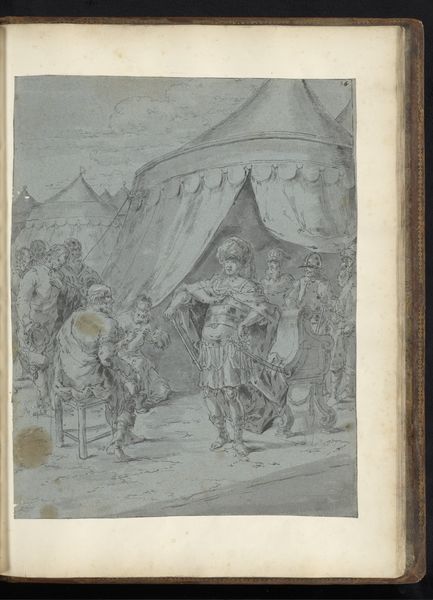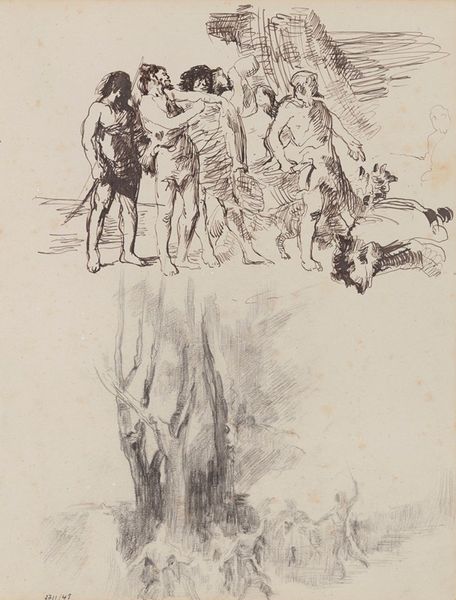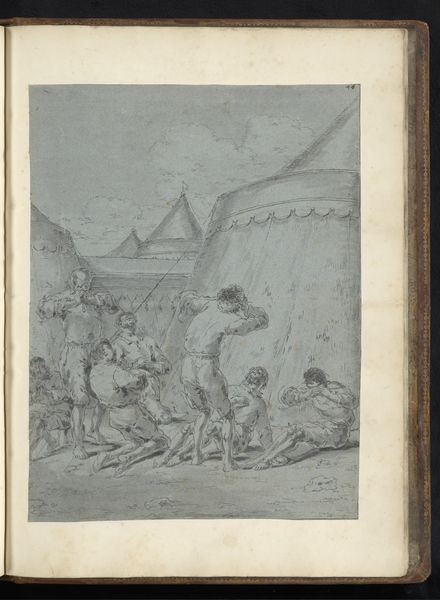
drawing, watercolor, ink, pencil
#
drawing
#
baroque
#
ink painting
#
pencil sketch
#
landscape
#
figuration
#
watercolor
#
ink
#
coloured pencil
#
pencil
#
watercolour illustration
#
history-painting
Dimensions: height 407 mm, width 312 mm
Copyright: Rijks Museum: Open Domain
Curator: Here we have Leonaert Bramer's "Alexander the Great Ordering the Punishment of Bessus," created sometime between 1655 and 1665. It's currently housed here at the Rijksmuseum. Editor: Wow, there's such a haunting quality about it. That restrained palette of primarily brown inks and watercolor—it lends the whole scene this weighty, almost melancholic feeling, doesn't it? The sketchiness somehow amplifies the brutality of the subject. Curator: Precisely. The visible drawing processes are significant here. The blending of ink and watercolor serves to elevate this piece, historically, this marriage of different drawing media was not always a given, suggesting Bramer's desire to go beyond traditional approaches and elevate the status of the drawing as its own independent work of art rather than just as a sketch or preparatory work for painting. Editor: It feels more immediate, more raw. It also reminds me a bit of those illustrations you’d see in old history books, capturing grand, important moments in simplified ink and pencil form to bring them to life. You know? Sort of like those colored pencil highlights dancing on top of the ink sketches—sort of childlike but so vivid that way. Curator: Yes! And notice the composition, in terms of materials, with Alexander off to the left, very much set apart from Bessus whose literal demise occupies more of the pictorial space. The artist does a really masterful job staging this drawing, playing up some areas, obscuring others. The materials here invite closer examination to follow what, I think, is a deliberate historical, artistic and political interpretation of this execution. Editor: Bramer, then, not just illustrating an event, but engaging with the moral questions, perhaps? Or at least opening space for reflection. It's like he's inviting us to contemplate the price of power, the cyclical nature of violence, through this somewhat simplified Baroque drawing with humble artistic choices. Curator: I agree completely. A relatively simple selection of media, deployed towards a fairly challenging interpretation and composition... I'm struck, every time, by the questions about power it continues to generate in my own mind. Editor: For me too, that atmosphere, combined with Bramer's touch—I feel strangely captivated and disturbed, all at once. Definitely worth a longer look.
Comments
No comments
Be the first to comment and join the conversation on the ultimate creative platform.
